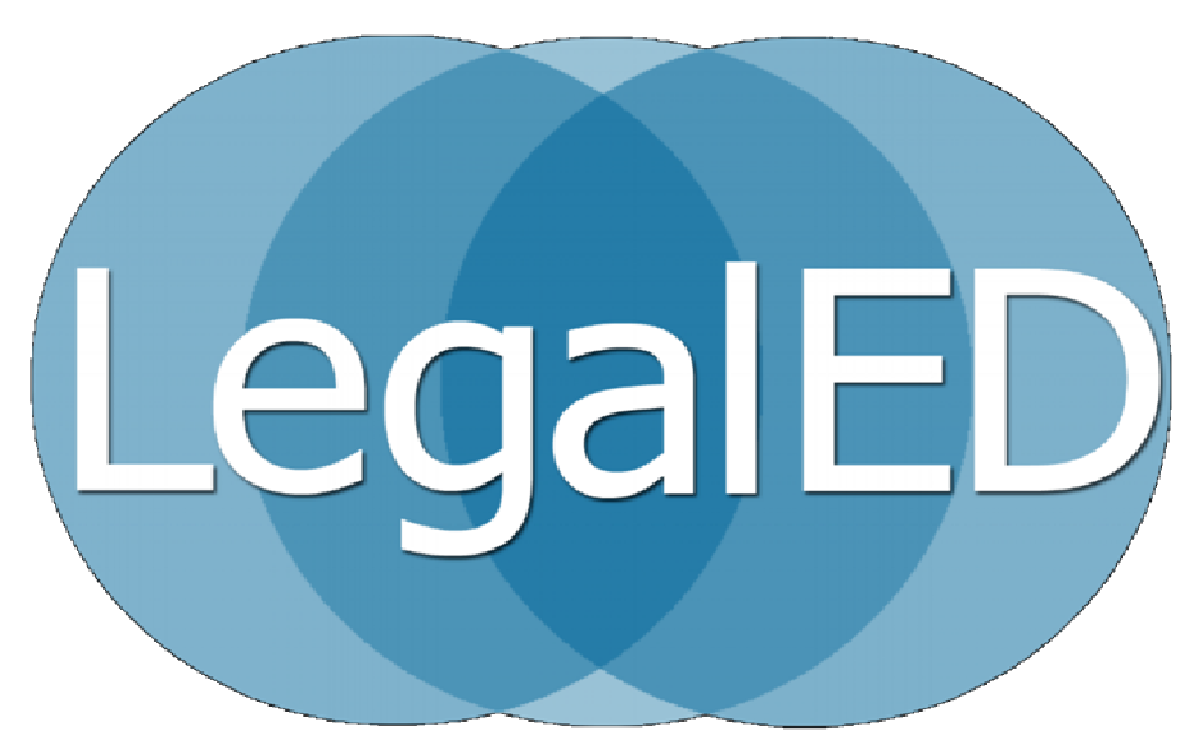Igniting Law Teaching Conference 2014
Beyond Traditional Law Subjects
John Bickers teaches at NKU. He is a retired Army Judge Advocate. He began his career in tanks, but became a lawyer because he seemed pretty dangerous with combat equipment. His research interests include the Establishment Clause and military commissions (one of his articles about these was quoted by the Supreme Court). On fall Sundays he claims fantasy football is a “research interest” but he has yet to produce any articles in this field.
Talk Summary: This talk suggests that true electives in the law school curriculum offer the freedom to teach the students how to be lawyers. John tells of his National Security Law course, in which students had no casebooks, worked in teams to research the legal background for crises, and telecommunicated from separate classrooms to conduct interagency meetings to prepare advice for the president.
After graduating from the George Washington University, Ryan served as an Americorps volunteer, a wild land fire fighter, and a teacher in Mexico before attending CUNY Law School. Upon graduation, Ryan served as a clerk with the New Jersey Superior Court and then with Catholic Charities Immigration Services, advocating on behalf of immigrant children in federal custody. Ryan returned to CUNY Law to teach in the Pipeline to Justice Program and work in Student Affairs.
Allie Robbins received her BA from George Washington University, and her J.D. from CUNY Law School. Before returning to CUNY Law she served as an organizer and Assistant Counsel for the National Treasury Employees Union. Since being back at CUNY Law she has provided academic support, helped coordinate bar support programs, served as Director of Student Affairs, and is now Assistant Academic Dean. Prior to attending law school, she worked for United Students Against Sweatshops.
Talk Summary: The Law School as a Classroom: Law school offers myriad opportunities for experiential learning, many of which exist beyond the classroom and clinical setting. By realizing the valuable role that every member of the community plays in the education of advocates, law schools can formulate a holistic pedagogy that views every member as both teacher and student. In so doing, we will educate more mindful, compassionate and effective lawyers while simultaneously creating a more mindful, compassionate and effective law school.
Vicenç Feliú is the Associate Dean for Library Services and Associate Professor of Law at the Villanova University School of Law, where teaches Advanced IP and Copyright Law. His scholarship has focused on Civil Law, pedagogical reform in legal research, and copyright issues. When he was the Director of the Law Library at UDC, he implemented and embedded program pairing clinicians and librarians to improve research instruction and student performance.
Talk Summary: This program will address issues encountered in creating a collaborative teaching effort between clinical faculty and law librarians that leads to the teaching of legal research as a lawyering skill in the experiential learning environment of the clinic. This talk will be based on the experience from the program I developed while at UDC and its adaptation to the VUSL law clinics.
Professor Keyes directs the Immigrant Rights Clinic at the University of Baltimore School of Law. Her teaching, scholarship and practice all focus on improving access to justice for immigrants in the immigration system and other intersecting areas of the law, from criminal to family law. Her clinical work emerges from her years of practice at non-profits whose work with immigrants crossed a spectrum of legal needs and lawyering strategies.
Talk Summary: Narrative is central to so many lawyering skills, and this talk will explore ways to teach it to our students. I will demonstrate the exercise I use to introduce the subject to my students, eliciting the basic elements of plot and the themes that will guide the rest of the seminar. I will then show an exercise dividing the class to use story structure to argue for and against a hypothetical client.
Jim Milles is a Professor of Law at SUNY Buffalo Law School, where he teaches Legal Ethics, Information Privacy Law, and Computer Crime. Jim is a former law librarian, first at Saint Louis University, where he earned his J.D., and then at Case Western Reserve University School of Law. His research interests include cognitive biases and behavioral ethics, and he is a neophyte bourbon geek.
Talk Summary: Traditional legal education excels at teaching the law student to “think like a lawyer.” The current downturn in the legal market is leading many law schools to respond by promoting the J.D. as an all-purpose education that trains lawyers for leadership roles in any field. We are failing, however, in teaching aimed at inculcating a sense of responsibility to the client. Teaching lawyers to value their client’s interests above their own may be the greatest benefit of an increased emphasis on experiential learning.
Emmeline Paulette Reeves is an associate professor for academic success at the University of Richmond School of Law. She designed and implemented Richmond’s academic support and bar exam support programs. Professor Reeves co-authored an article, entitled Cool Data on a Hot Issue: Empirical Evidence that a Law School Bar Support Program Enhances Bar Performance, which presents statistical analyses supporting the conclusion that a bar support program can significantly improve bar passage rates.
Talk Summary: It may sound tricky to have a foot in each of three worlds, but, in fact, it can be a surprisingly effective stance. Students learn skills more effectively when taught in context, and skills necessary for law school success overlap substantially with skills required for bar exam success. Thus, this talk will explore the potential synergy in learning skills and doctrine in a single course and will focus on effective integration of skills and doctrinal instruction, while maximizing student engagement.

